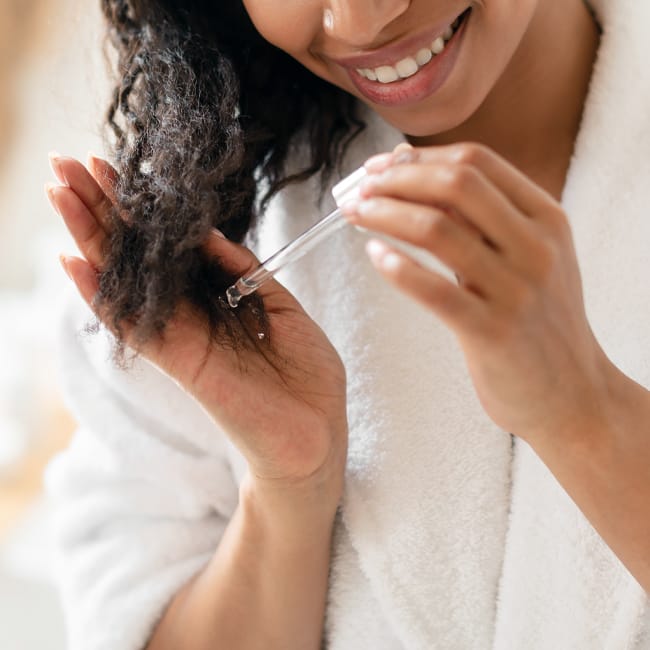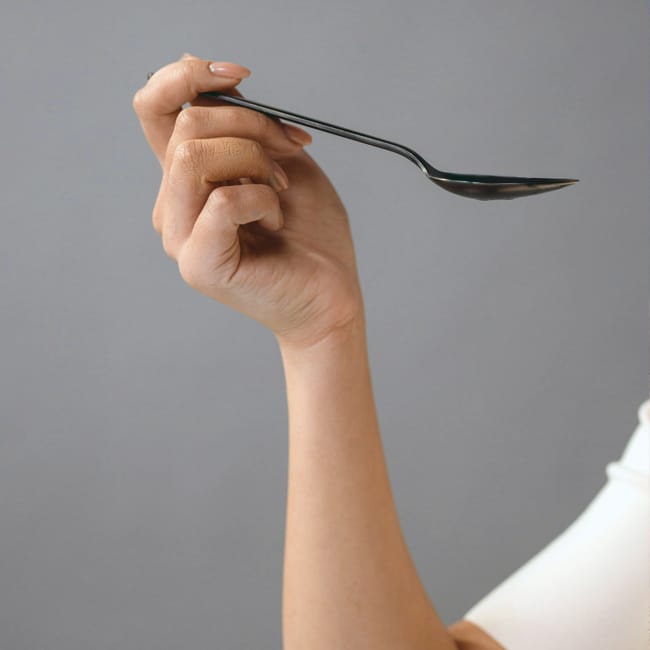Hair loss is unfortunately very common, and it can be very frustrating and devastating to your self confidence. It can feel incredibly hopeless, especially because the root cause is usually something internal that cannot be seen. Thinning hair could be your body’s way of sending you the message that something is awry on the inside, so getting to the root cause and treating that first is the best way to get healthy hair growth back. While this is something that’s extremely individualized, we asked experts some surprising things that may lead to hair loss.


Showering With Hot Water
Your shower routine is an essential component of how you care for your hair, so knowing best practices is key for keeping it healthy. “The act of showering shouldn’t impact your hair roots unless you are using really scalding hot water and burning your scalp as well.” Says Dr. Dominic Burg, chief scientist, hair biologist, microbiologist, and trichologist for evolis Professional. Many of us enjoy the relaxation of a hot shower, but it’s important to be mindful that we are not turning the temperature too hot. Dr. Burg also stresses the vulnerability of wet hair—if you are styling your hair fresh out of the shower when it’s wet, you should be careful with what tools you use and how hot they are. “Using hot styling tools on wet hair after showering can also lead to damage and breakage, as this “flash drying” is essentially boiling the water residue inside your hair.” If you find that your hair is thinning or breaking easily, consider letting it air dry when you have the time.
Shrinking Hair Follicles
Your hormones impact more than you may think, including your hair. “Hair starts to thin based on fluctuating hormones, particularly with menopause, as well as shrinking hair follicles.” Says Dr. Jeannette Graf, Board-Certified Dermatologist and Assistant Clinical Professor of Dermatology at Mt. Sinai School of Medicine. If you are experiencing hair loss, it could be because your hormones are imbalanced—if you think this may be the case for you, you should speak with your doctor about getting a hormone test and treating your symptoms accordingly.

Supplements
We consider supplements to be additions to our wellness routine that can only help, but some may have adverse effects, including selenium. Many people take selenium for it’s strong antioxidant properties. “While it’s an essential nutrient, [selenium] can be linked to hair loss when taken in excess. If you’re experiencing unwanted hair loss, it’s probably a good idea to watch your selenium consumption,” Jae Pak, M.D., a hair restoration specialist, told SheFinds.
Medical Conditions
Everyone’s health history is different, so taking into account the conditions you have is an important step in getting to the bottom of your hair loss. “Medical conditions such as anemia, thyroid issues, or lupus can affect your hair,” Dr. Graf says. Treating these conditions could indirectly improve the health of your hair—working with your doctor on treating those things first is important not only for your hair, but for your overall wellbeing too.
If you find that you’re struggling with hair loss, what are some other things you can do to support hair growth? “I swear by collagen supplements, look for a brand that has minimal ingredients and no sugar,” Says Dawn Del Russo, a beauty and lifestyle expert and founder of BellaDawn. It’s important to quality check the collagen you buy, as there are many on the market that may have harmful ingredients. “Also be sure that the collagen source is wild, no-gmo. My current favorite is Agent Nateur Holi mane.” Hair loss can be devastating, and it’s often a long process to get hair growth back. The most important thing is consistency with your regimen. If you think your hair loss is connected to another condition, you should talk with your healthcare provider about next steps for treatment.


























